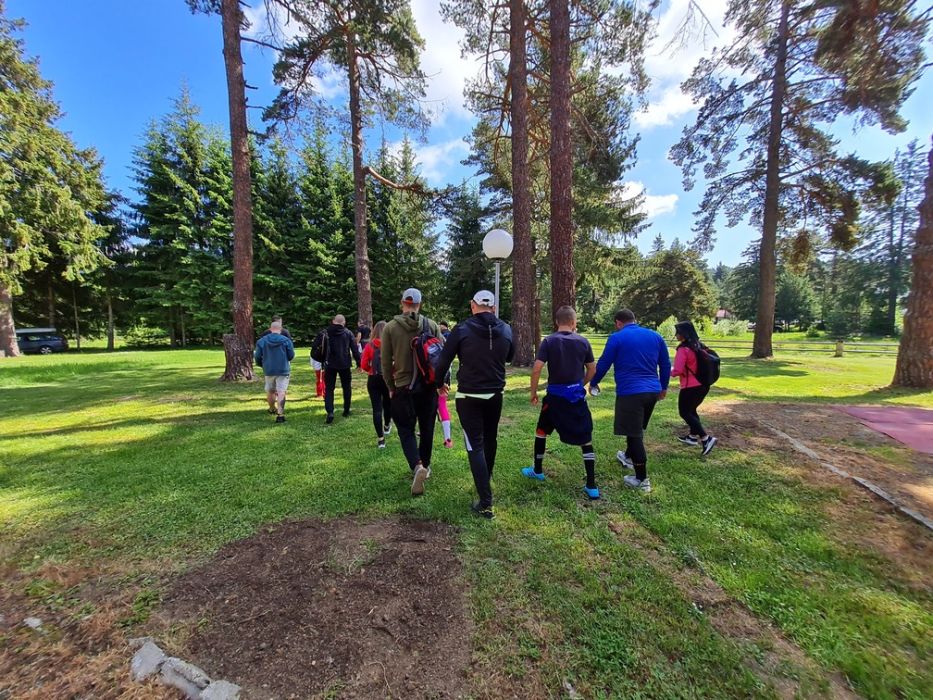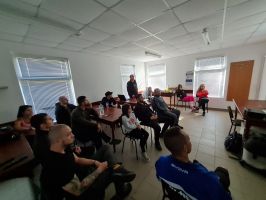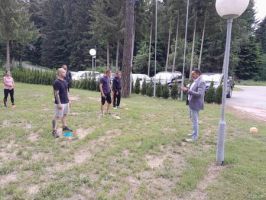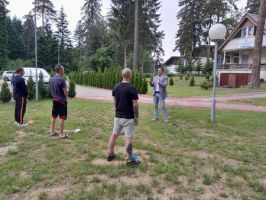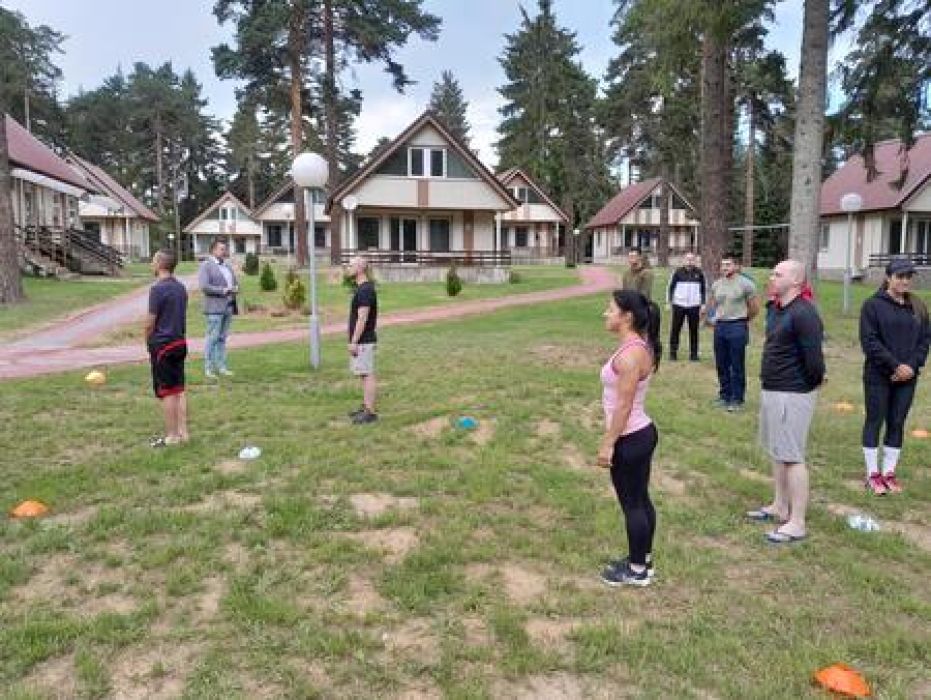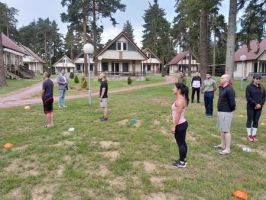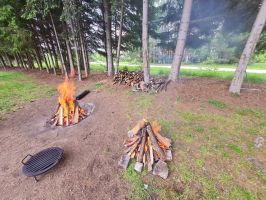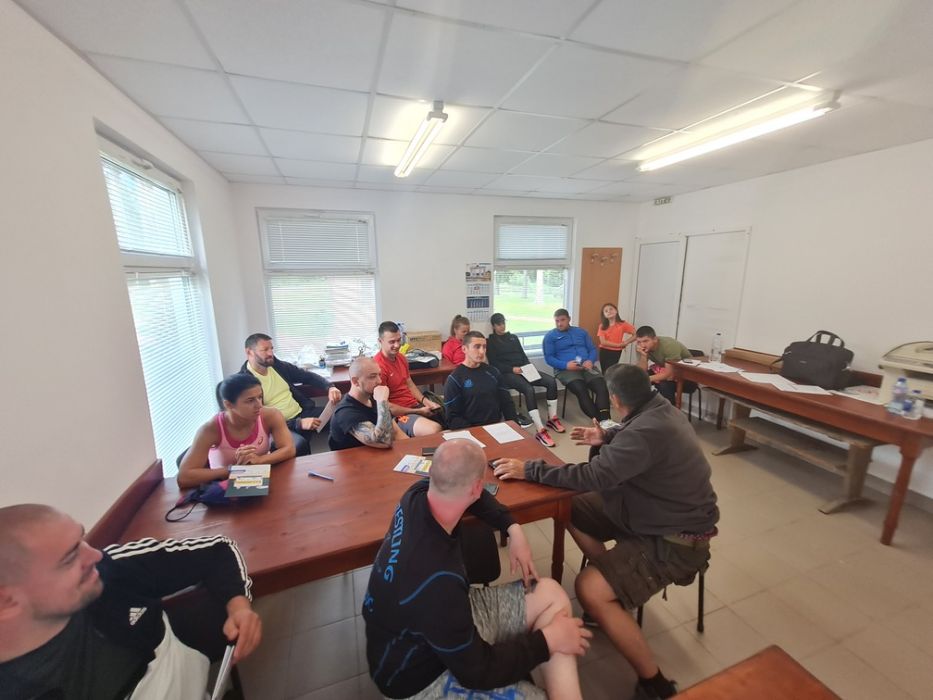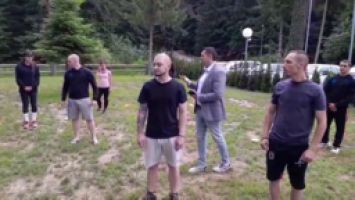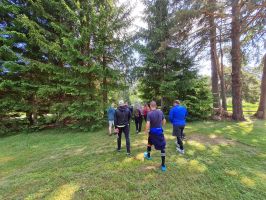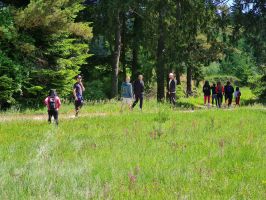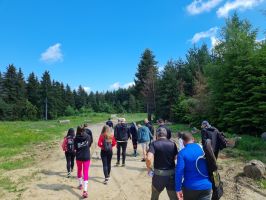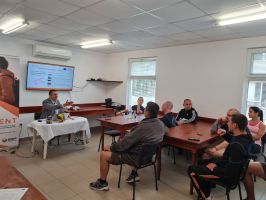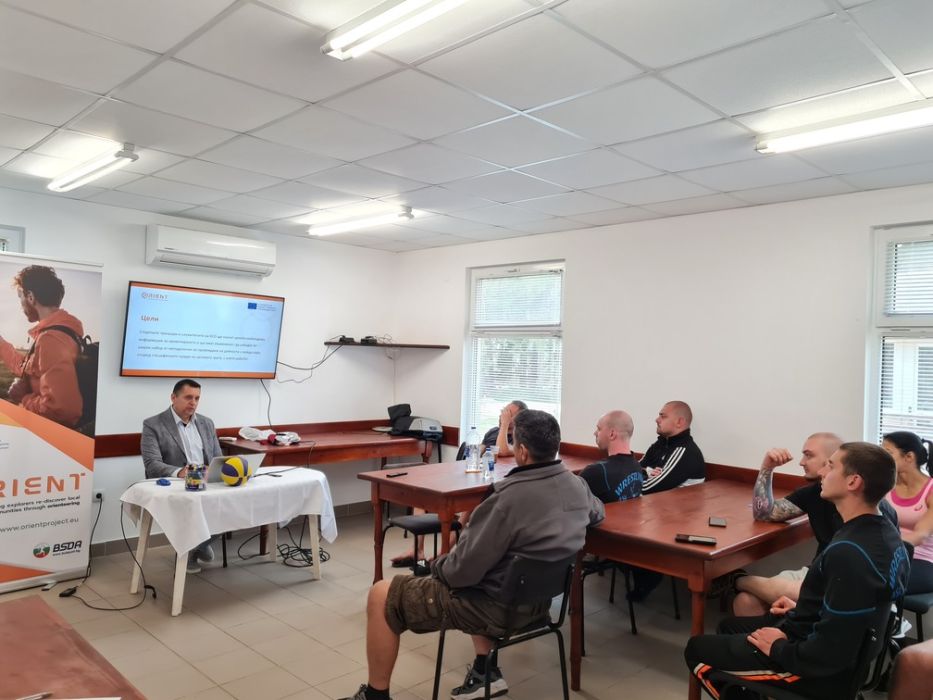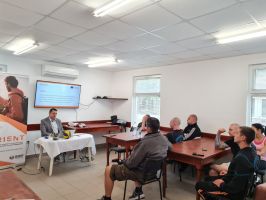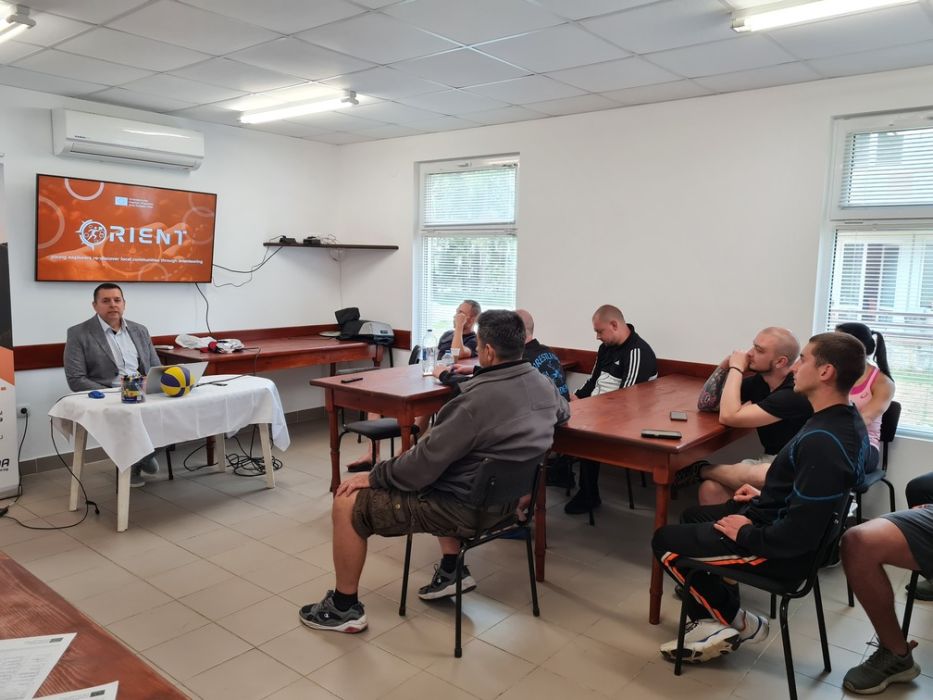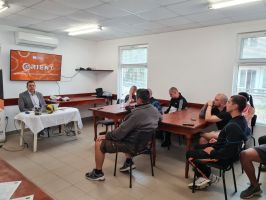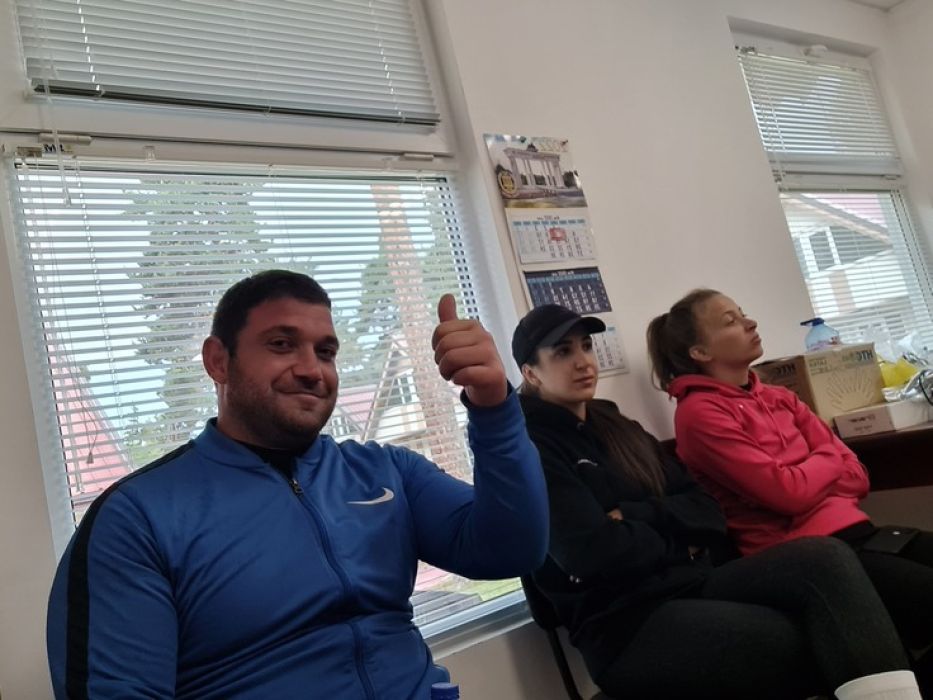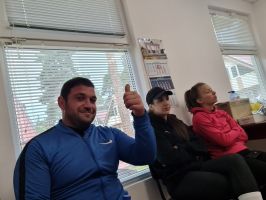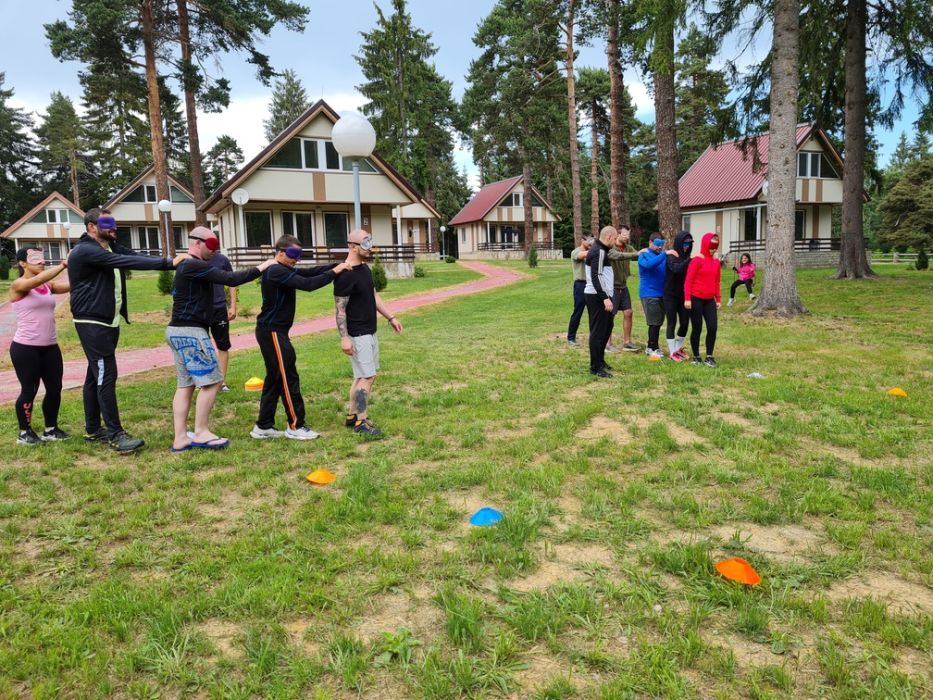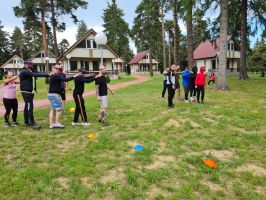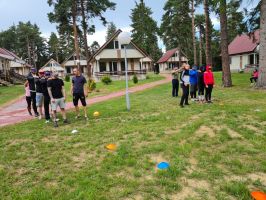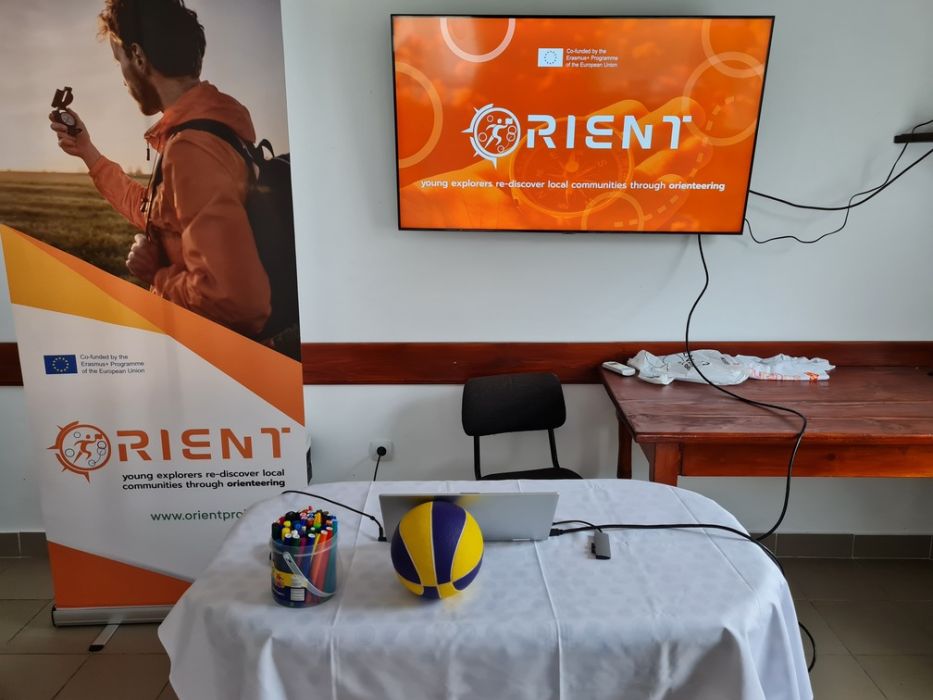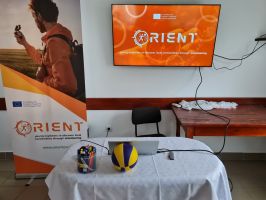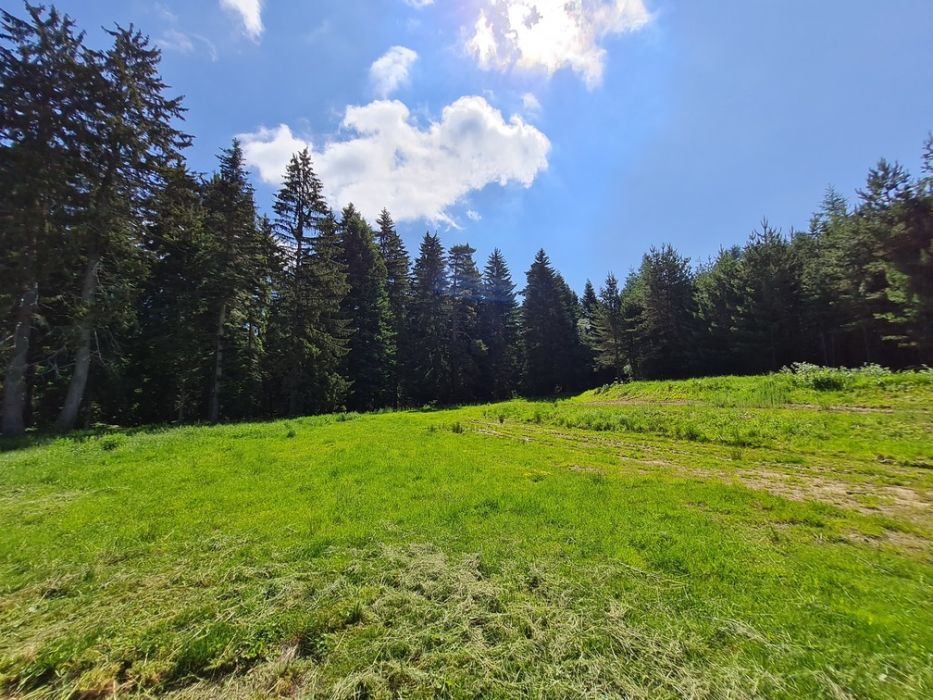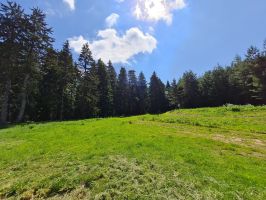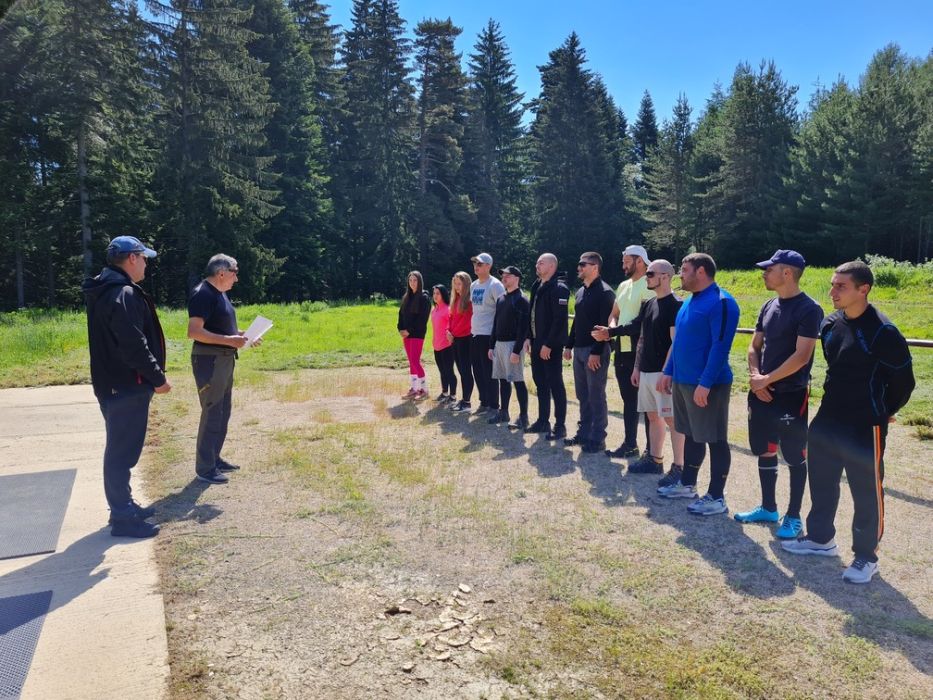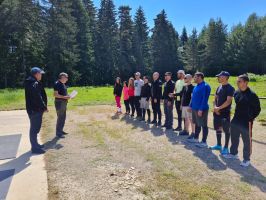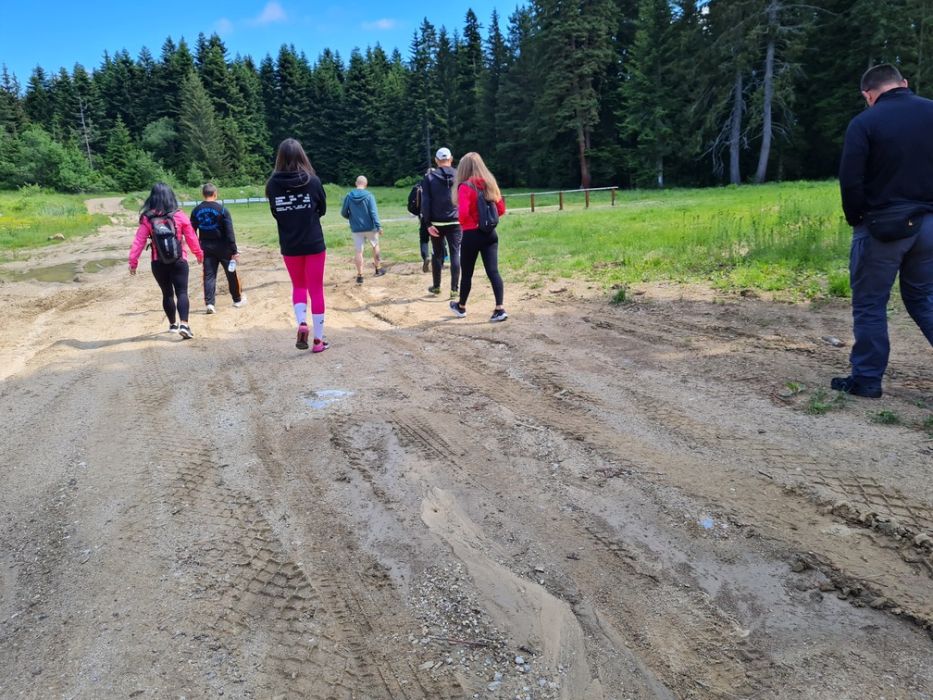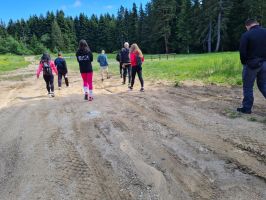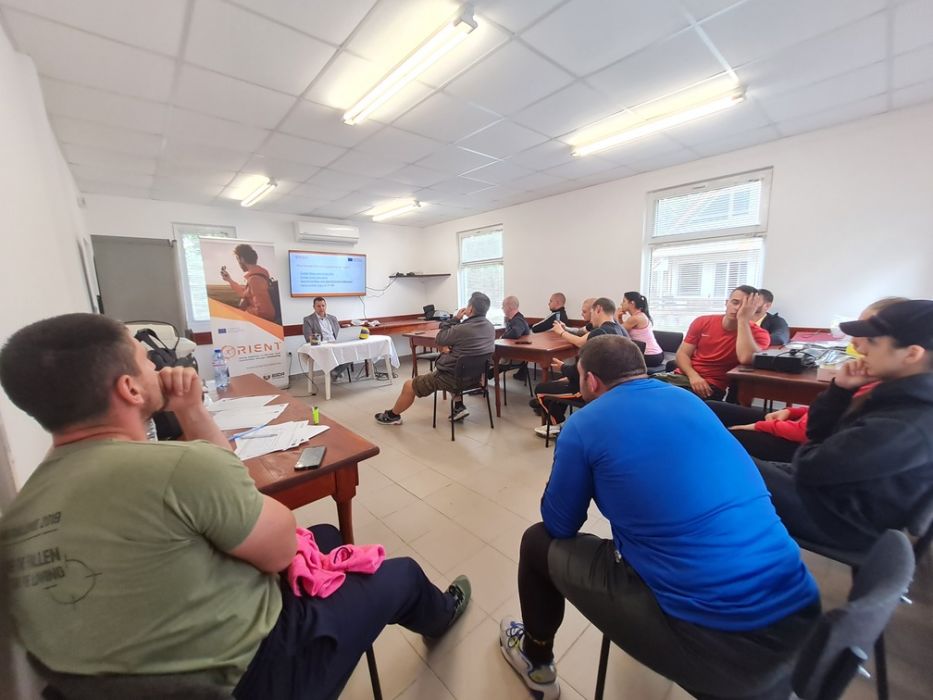NEWS

BSDA HELD A TRAINING UNDER THE ORIENT PROJECT


08.06.2022
On June 8, 2022, in Borovets, Bulgaria, Bulgarian sports development association conducted a training, with the support of the Department of Weightlifting, Boxing, Fencing and Sports for All, at the National Sports Academy "Vasil Levski", within the "ORIENT – Young explorers re-discover local communities through orienteering” project which is implemented in partnership with 5 European countries and one country from the Western Balkans: Italy, Bulgaria, Greece, Cyprus, Austria and Bosnia and Herzegovina. The project aims to improve the social inclusion and to spread the information regarding the local realities in different countries, while promoting a sense of freedom and positive change at local level, encouraging the involvement of young people in outdoor activities based on orienteering. ORIENT addresses the priority “encourage social inclusion and equal opportunities in sport” by developing a set of innovative outputs.
THE PROJECT PURSUES THE FOLLOWING SPECIFIC OBJECTIVES:
1) Promoting social inclusion and participation of vulnerable young people and other local community members by using orienteering as a multi-goal activity;
2) Enhancing sport trainers’, and Civil Society Organisations’ workers abilities to foster social inclusion at local level by using orienteering as a grassroot sport able to encourage participation and ownership of shared values;
3) Raising awareness among local communities, stakeholders and policy-makers of the value of sport as a tool for inclusion in order to foster solidarity and participation as well as cohesion and inclusion policies.
INNOVATIVE ASPECTS OF ORIENT PROJECT ARE:
The project promotes a number of innovation features, namely:
1) ORIENT will propose an approach based on the use of orienteering as a means to enhance social inclusion by creating concrete opportunities for vulnerable young people to work as a team;
2) The choice of orienteering as a grass-root initiative able to enhance the connection between the members of a same community, both in rural and urban environments, is itself a significant innovation feature;
3) The whole ORIENT project fosters participative and co-creative approaches involving the target groups directly in face-to-face education and sport activities;
4) The involvement of both sport trainers and CSOs’ workers together with the set-up of local ORIENT networks (T5.1) in the project also represents an innovative feature: indeed, the two groups will be able to exchange their respective knowledge (i.e. technical knowledge on sport and know-how on tackling social exclusion at local level), becoming complementary to one another.
ORIENT project is co-funded by the Erasmus+ program of the European Union.
1) Promoting social inclusion and participation of vulnerable young people and other local community members by using orienteering as a multi-goal activity;
2) Enhancing sport trainers’, and Civil Society Organisations’ workers abilities to foster social inclusion at local level by using orienteering as a grassroot sport able to encourage participation and ownership of shared values;
3) Raising awareness among local communities, stakeholders and policy-makers of the value of sport as a tool for inclusion in order to foster solidarity and participation as well as cohesion and inclusion policies.
INNOVATIVE ASPECTS OF ORIENT PROJECT ARE:
The project promotes a number of innovation features, namely:
1) ORIENT will propose an approach based on the use of orienteering as a means to enhance social inclusion by creating concrete opportunities for vulnerable young people to work as a team;
2) The choice of orienteering as a grass-root initiative able to enhance the connection between the members of a same community, both in rural and urban environments, is itself a significant innovation feature;
3) The whole ORIENT project fosters participative and co-creative approaches involving the target groups directly in face-to-face education and sport activities;
4) The involvement of both sport trainers and CSOs’ workers together with the set-up of local ORIENT networks (T5.1) in the project also represents an innovative feature: indeed, the two groups will be able to exchange their respective knowledge (i.e. technical knowledge on sport and know-how on tackling social exclusion at local level), becoming complementary to one another.
ORIENT project is co-funded by the Erasmus+ program of the European Union.

 Български
Български







































